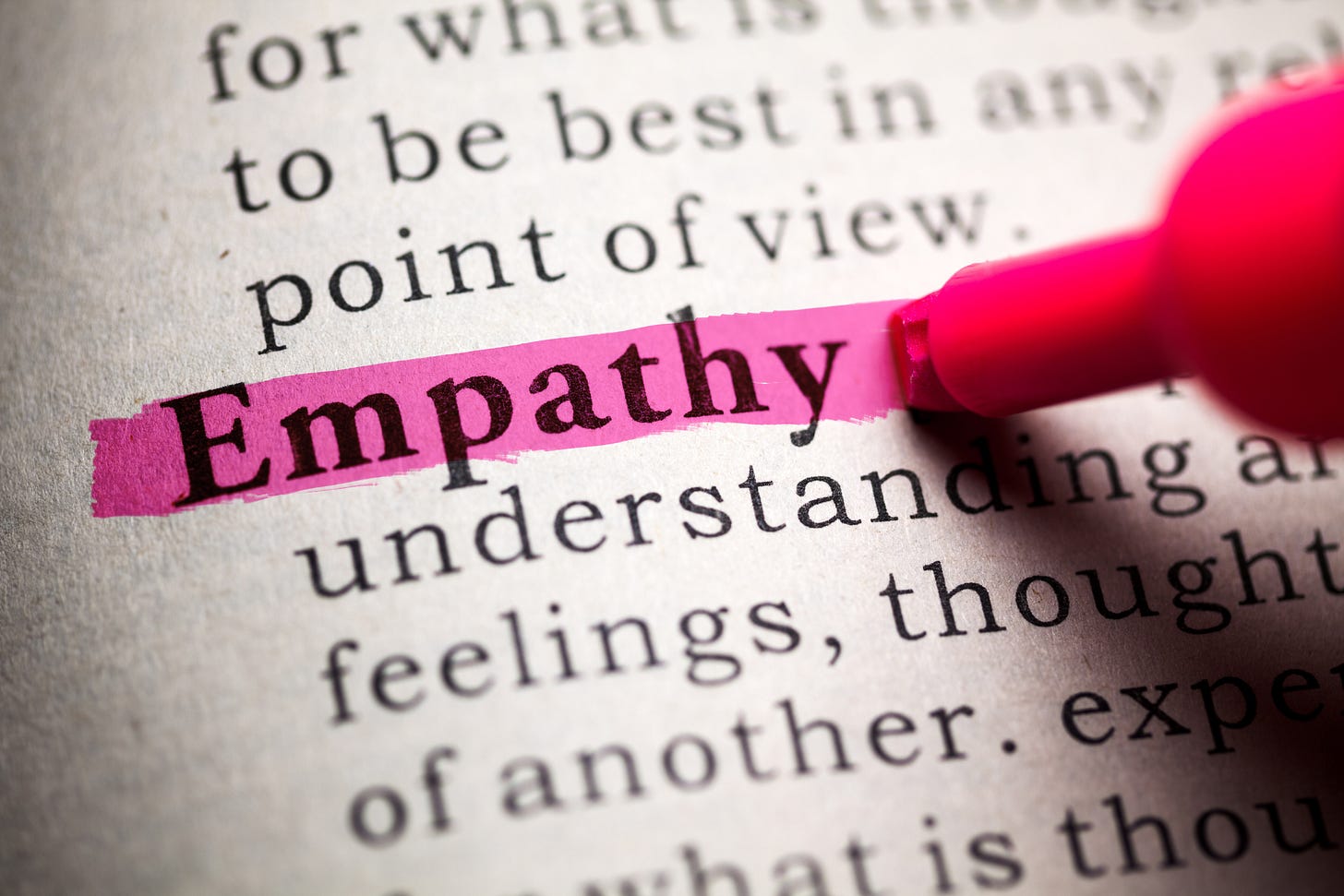Empathy: A Superpower, Not a Weakness
(aka, Real Men Possess and Value Empathy)
In a world that often glorifies hustle, competition, and individualism, empathy can sometimes feel like an underrated virtue. You might hear phrases like “Don’t let emotions cloud your judgment” or “You’ve got to toughen up to succeed.” These statements imply that empathy is a liability—a trait that could hinder success or diminish authority. But this couldn’t be further from the truth.
Empathy isn’t just a “nice-to-have” quality; it’s a strength that can transform relationships, inspire teams, and drive meaningful change. Let’s explore why empathy is always a strength and never a weakness.
1. Empathy Builds Stronger Connections
At its core, empathy is about understanding and sharing the feelings of others. When you empathize with someone, you’re saying, “I see you. I hear you. Your feelings matter.” This creates trust and builds more profound, more authentic connections—whether with family, friends, colleagues, or customers.
Strong connections aren’t just personally fulfilling; they’re also the foundation of success in any field. Leaders who show empathy earn the loyalty and respect of their teams. Businesses that empathize with their customers’ needs create better products and experiences. In every context, empathy fosters collaboration, understanding, and mutual respect.
2. Empathy Drives Better Decision-Making
Contrary to the notion that empathy clouds judgment, it actually sharpens it. When you take the time to consider others’ perspectives, you make decisions that are more inclusive and balanced. Empathy helps you anticipate how your choices will impact others, reducing the risk of unintended consequences.
For example, in the workplace, empathetic leaders are more likely to recognize and address burnout, creating environments where employees thrive. In personal relationships, empathy prevents conflicts from escalating, as it allows you to approach disagreements with understanding rather than defensiveness.
3. Empathy Fuels Innovation
Empathy is the starting point of design thinking and innovation. When you truly understand the needs, frustrations, and desires of others, you’re better equipped to create solutions that matter. Empathy enables you to step into someone else’s shoes and imagine possibilities they might not even articulate themselves.
Think of some of the most groundbreaking inventions and initiatives—many were born out of a desire to ease pain, solve problems, or bring joy to others. Empathy doesn’t just fuel creativity; it ensures that creativity is directed toward meaningful impact.
4. Empathy Strengthens Resilience
Empathy allows you to face challenges with grace. When you understand others’ struggles, you’re reminded that you’re not alone in facing difficulties. Empathy also equips you to build support networks, as people are more likely to rally around those who show genuine care.
Moreover, empathetic individuals are often better at managing conflict and stress. Instead of reacting impulsively, they respond thoughtfully, considering the emotional dynamics at play. This emotional intelligence not only helps resolve problems but also prevents them from escalating.
5. Empathy Is Contagious
One of the most beautiful things about empathy is its ripple effect. When you show empathy, you inspire others to do the same. This creates a culture of kindness, understanding, and mutual support. Whether in a workplace, a community, or a family, empathy has the power to transform environments and elevate everyone involved.
Reframing Empathy as Strength
It’s time to challenge the outdated narrative that equates empathy with weakness. Empathy doesn’t make you soft; it makes you strong. It’s not a distraction; it’s a guide. Empathy doesn’t hold you back; it propels you forward.
So the next time someone tells you to toughen up or hide your emotions, remember this: empathy is your superpower. Use it boldly, and watch how it transforms your world and the lives of those around you.


